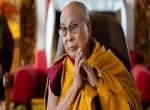For India, the dramatic change of regime in Bangladesh, with Sheikh Hasina having to resign under military pressure and leave the country hastily as the army could not ensure her personal safety, is a serious setback.
It can always be debated whether her downfall occurred because of the mistakes she made in running the country with an authoritarian streak and then mishandling the student agitation, or there were forces at work for some time to remove her from power and they exploited the student agitation to achieve their objective.
Admittedly, Sheikh Hasina was authoritarian, and the accusation that with fifteen years of power the people around her and the Awami League (AL) cadres had become corrupt could well be true. That she was authoritarian was perhaps inevitable in a society like that of Bangladesh which has seen several military coups, in which Islamic extremism continues to oppose the more secular forces in the country represented by the AL, and in which the wounds of the liberation struggle have remained unhealed, and bringing to justice those who had collaborated with the Pakistani army to commit genocidal atrocities against the Bengalis has remained on Sheikh Hasina’s agenda.
The struggle in Bangladesh has not been between autocracy and democracy. It can hardly be argued that the opposition parties in Bangladesh, whether the Bangladesh Nationalist Party (BNP) led by Khaleda Zia and now her son, Tarique Rahman, in exile in London, are more committed to democracy than the AL. Khaleda Zia has animus against India; her government sheltered anti-Indian insurgents on its soil; under her government the ISI was active on the ground; she was opposed to giving any transit facilities to India to our northeast through Bangladesh territory; and, she had Jamaat-e-Islami (JeI), an extremist Islamic anti-Indian, pro-Pakistan party, as a political partner.
The US has been critical of Sheikh Hasina on the democracy and human rights front, to the point of not inviting Bangladesh to the two Summits for Democracy held in Washington D.C. by the Biden administration. Ironically, Pakistan was invited. The US has imposed sanctions on Bangladesh on a special state police unit and several of its officials for human rights violations and a former Army Chief for “significant corruption” and “undermining… Bangladesh’s democratic institutions”. In September 2023, the US State Department warned it would “impose restrictions on Bangladeshi individuals responsible for, or complicit in, undermining the democratic election process in Bangladesh”.
The State Department’s Assistant Secretary in charge of the region who visited Bangladesh a few months ago said subsequently that “Promoting democracy and human rights in Bangladesh remains a priority for us. We will continue to support the important work of civil society and journalists and to advocate for democratic processes and institutions in Bangladesh, as we do in countries around the world…”. He added: “We were outspoken in our condemnation of the violence that marred the election cycle [in January 2024] and we have urged the government of Bangladesh to credibly investigate incidents of violence and hold perpetrators accountable. We will continue to engage on these issues…” On July 22, the US urged the AL government to “uphold the right to peaceful protest” in the middle of the student agitation.
This contrasts with the position the US has taken on the democratic process in Pakistan. The Pakistan Army Chief, who engineered the ouster of Imran Khan from power with a compliant judiciary and prevented his participation in election process, visited the US in December, 2023, and was received by Defence Secretary Austin, Secretary of State Blinken, the National Security Adviser Sullivan, and even the UN Secretary General. Clearly, the lack of democratic credentials of the Pakistan army chief and the long record of the Pakistan army stifling democracy in Pakistan were overlooked for geopolitical reasons. The US would be aware that India would be drawing some conclusions from this as the Pakistan army, unlike Sheikh Hasina’s approach towards India, is fundamentally hostile to India.
Sheikh Hasina has been accusing the US of plotting against her. In May this year at a meeting at her residence she accused the US, without naming it explicitly, of seeking to carve out a Christian state from parts of Bangladesh and Myanmar on the model of Timor-Leste. At that meeting she mentioned a proposal from a “white man” to build an airbase in Bangladesh for a “foreign country’, in return for which she would receive guaranteed support for re-election in January this year. A statement attributed to her while in Delhi that she had denied to the US military access to St. Martin Island has been disowned by her adviser as “fabricated”, probably in deference to India’s sensitivities. The US has termed as “simply, simply false” and “laughable” the charge that it was responsible for her ouster. The force of such denials in the background of the reality that the US has engaged in regime changes in several countries is arguable.
The issue is not whether the US directly caused the regime change, it is whether it contributed to the environment that led to it. What cannot be denied is that the US has interfered in Bangladesh’s internal affairs. By targeting the Sheikh Hasina government on issues of democracy and human rights the US has contributed to de-legitimising it and has given oxygen to the opposition. The US has been interfering in India’s internal affairs too on issues of democracy, human rights and minorities. Bangladesh is a much softer target. Such interference boosts domestic opposition, more so as the US funds local NGOs which are often critical of government policies. US control over social media also aids local opposition forces and civil society campaigns against the government.
The US has pursued a policy in Bangladesh that is not in consonance with India’s interests. It is a question worth asking why despite being strategic partners the US has not been receptive to India’s concerns in an area of great strategic importance to New Delhi. The stability and development of our northeast is aided by stability and a friendly government in Bangladesh that supports connectivity with India, offers transit facilities to our northeast, prevents operations by anti-Indian insurgents from its soil against our territory, and not allows Pakistan to fuel anti-Indian sentiments in Bangladesh in league with the extremist Islamic elements there.
Logically, the US would have interest in working together with India in the Bay of Bengal as part of a shared Indian Ocean strategy anchored in the Quad and the Indo-Pacific concept. Even Sheikh Hasina’s government had opened doors to China as part of a degree of external balancing with India, whether in the award of infrastructure projects or, in particular, in major defence acquisitions. This was part also of internal balancing aimed at managing the anti-India and pro-Chinese elements in the country. With a change in regime, the BNP or the JeI are likely to push for opening more doors for China which eyes port facilities in the country for the movement of its naval assets. With a less friendly government in Bangladesh, and added to this the turmoil in Myanmar, India’s Act East policy to build connectivity eastwards loses even more steam and ultimately benefits China. There’s no win-win in US policy in Bangladesh; it is more of a lose-lose. With the kind of support the US is giving to Israel and the continuing carnage in Gaza, the US is not likely to win the hearts of the anti-Sheikh Hasina elements in Bangladesh.
The situation is, of course, fluid in Bangladesh. It is not clear whether the leader of the interim government Muhammad Yunus, despite the respect he enjoys with the student leaders, will be able to handle the volatile situation in the country. The interim set-up is ultimately dependent on the Army for managing the transition to an elected government. The possibility of holding elections in the near future, however, seems thin. The AL, associated with Bangladesh’s creation, remains a political force. The vandalising of the symbols of Bangladesh’s liberation, and characterising Sheikh Hasina’s ouster as a second liberation are ominous signs. The interim Home Minister wants the AL to reconstitute itself under a new leadership to be eligible to take part in a future election. How that will take place is a process to be watched, but without AL’s unfettered participation any election will not be seen as credible.
Many imponderables exist as Bangladesh embarks on a new phase in its politics and governance. The immediate task of the interim government is to restore law and order and stabilise the functioning of the economy, which was already under stress. The issue of security of the Hindu minority is a serious one. Prime Minister Modi, in his message of congratulations to Muhammad Yunus, mentioned his concern about the security of Hindus and other minorities in the country. Yunus has done well to visit the main Hindu temple in Dacca to signal that he is conscious of the need to provide security to the Hindu population. In his Independence Day speech on August 15, Modi has raised this issue as one of concern to 1.4 billion Indians, which send an unusually strong and unprecedented message to Bangladesh.
This concern of Modi contrasts with the absence of any expression of concern by the US about the security of minorities in Bangladesh. Blinken’s two statements on developments there omitted any reference to any such concern. The US, including Blinken himself, has been provocatively vocal in statements and official reports on minority issues in India. On August 14, the State Department has finally referred to the issue of minorities in Bangladesh, but even this is not stated as an independent US concern. The US has welcomed “the new government’s focus on restoring security and protection of members of minority communities as well”. The US approach has been to not independently press the interim government to assume responsibility but to give credit to it for deciding to do so. There is a nuance in this.
Our High Commissioner in Bangladesh has called on the interim foreign minister of Bangladesh. The Bangladesh readout of the meeting is unusually lengthy, and the tone is edgy in parts. It refers pointedly to a “second liberation”, calls Sheikh Hasina’s statements from Indian soil as not conducive to fostering better relations and, while assuming responsibility for protecting all religious and ethnic groups and ensuring safety and security of minorities, criticises “highly exaggerated media campaigns about happenings in Bangladesh”. It lists the need to settle some contentious issues such as border killings and the conclusion of the Teesta Water Sharing Agreement. It refers to “ensuring supplies of essential goods”, but makes no big frame reference to continuing cooperation with India on all mutually beneficial fronts.
India would, of course, be ready to deal with the new government and resume bilateral cooperation, in the hope and expectation that any responsible government in Bangladesh would not easily want to fritter away the gains made by the country in forging closer ties with India across various domains. The Muizzu government in Maldives began with an ‘India-Out’ campaign but is now willing to reach out to a patient India. Bangladesh presents a more complex challenge. India will have to address it also with patience as well as watchfulness.
(The paper is the author’s individual scholastic articulation. The author certifies that the article/paper is original in content, unpublished and it has not been submitted for publication/web upload elsewhere, and that the facts and figures quoted are duly referenced, as needed, and are believed to be correct). (The paper does not necessarily represent the organisational stance... More >>
Image Source: https://www.thehindu.com/news/international/minorities-faced-205-attacks-after-fall-of-sheikh-hasina-government-in-bangladesh-hindu-groups/article68508954.ece









Post new comment